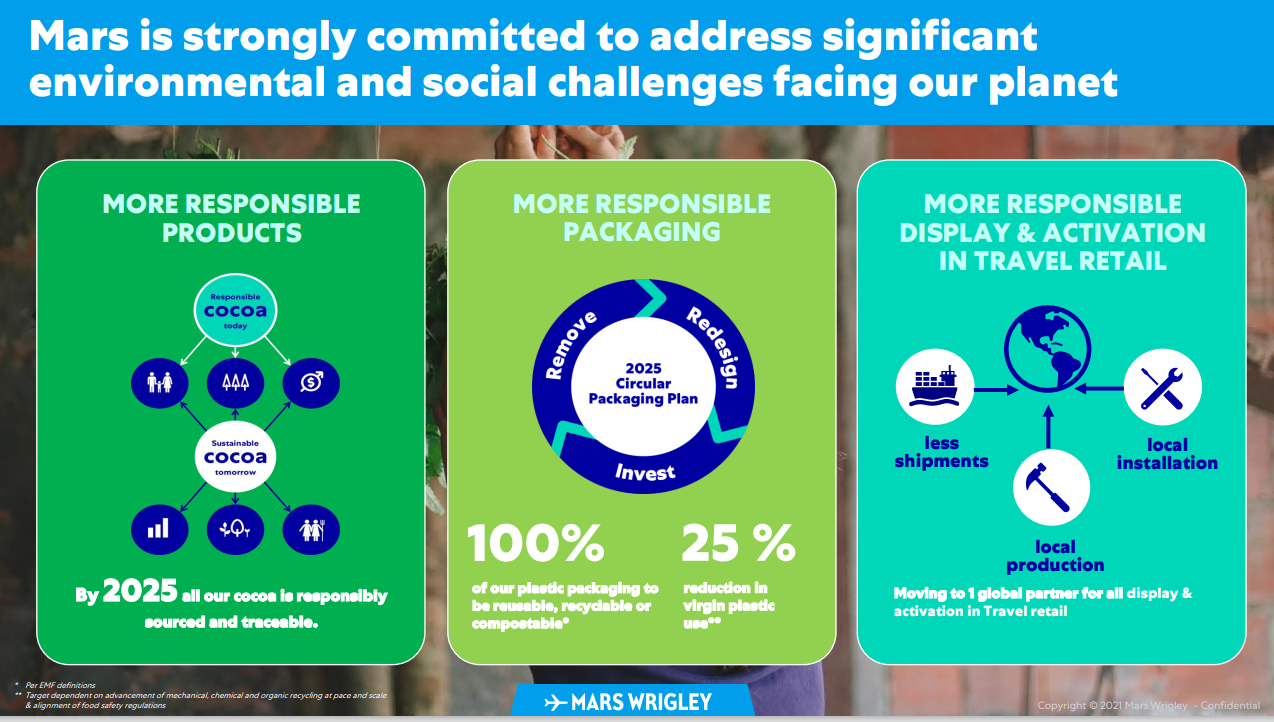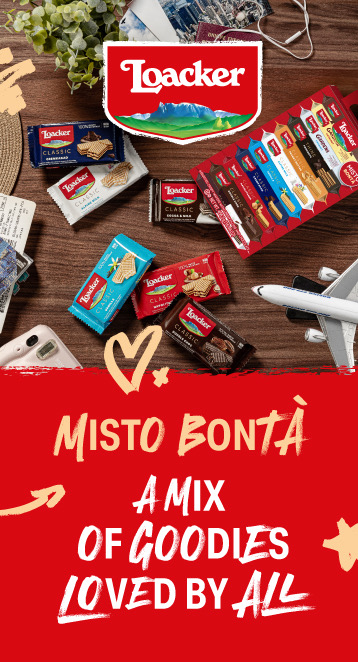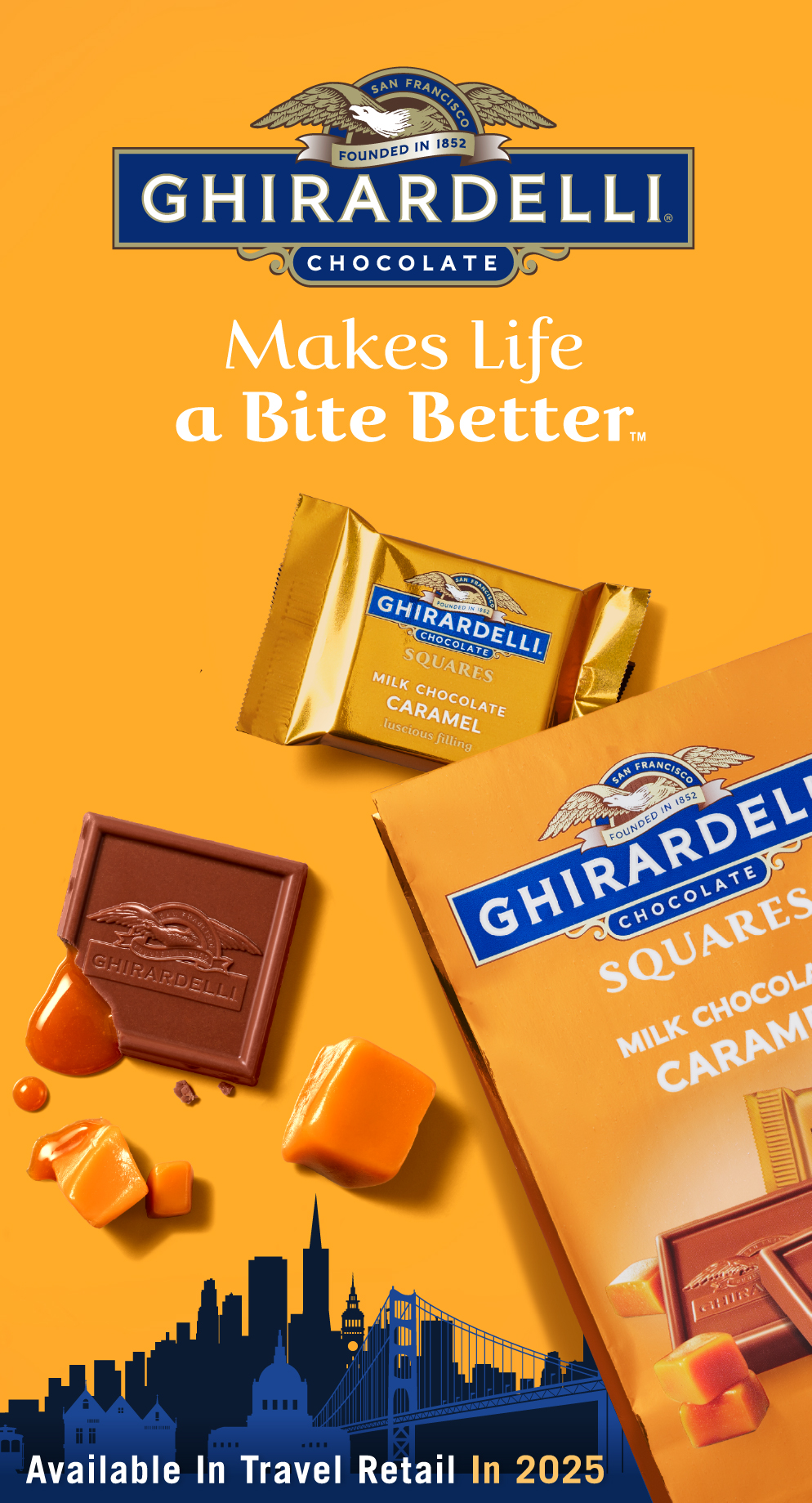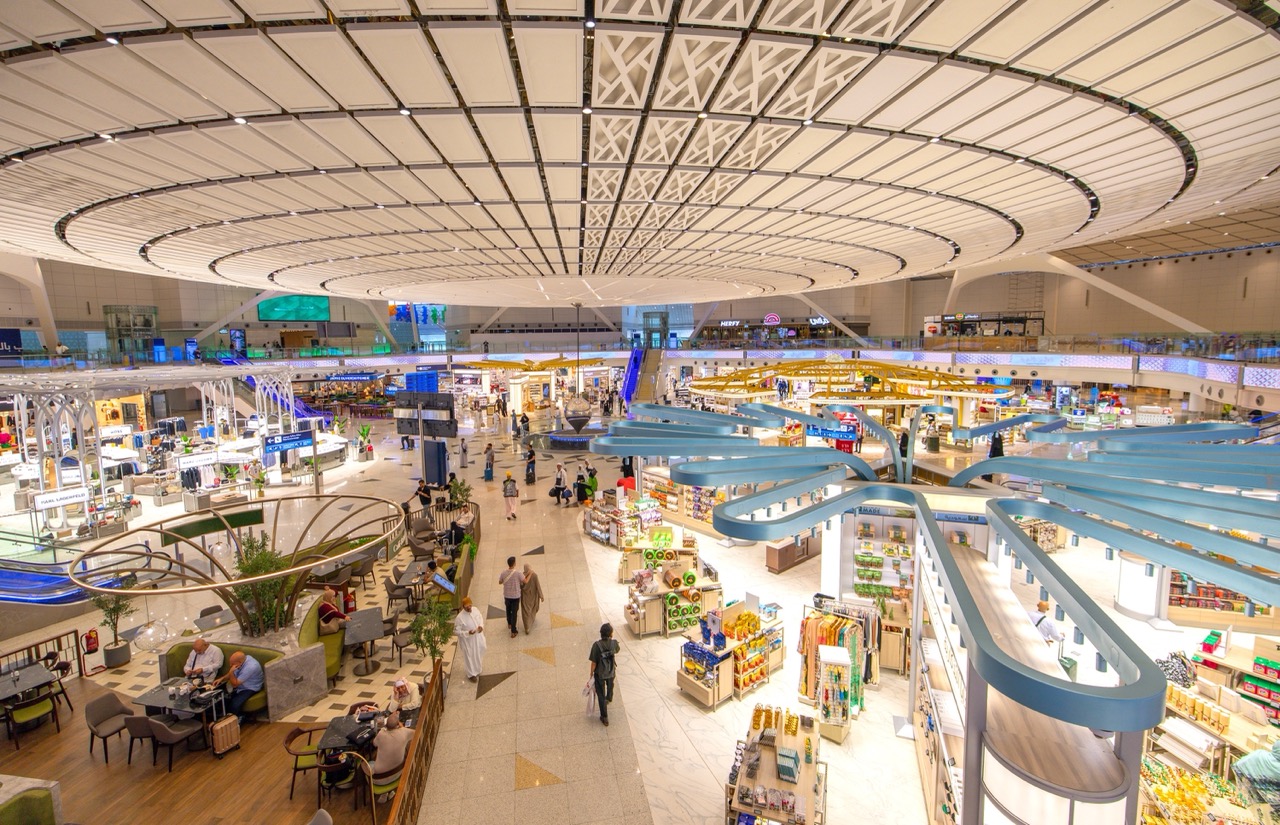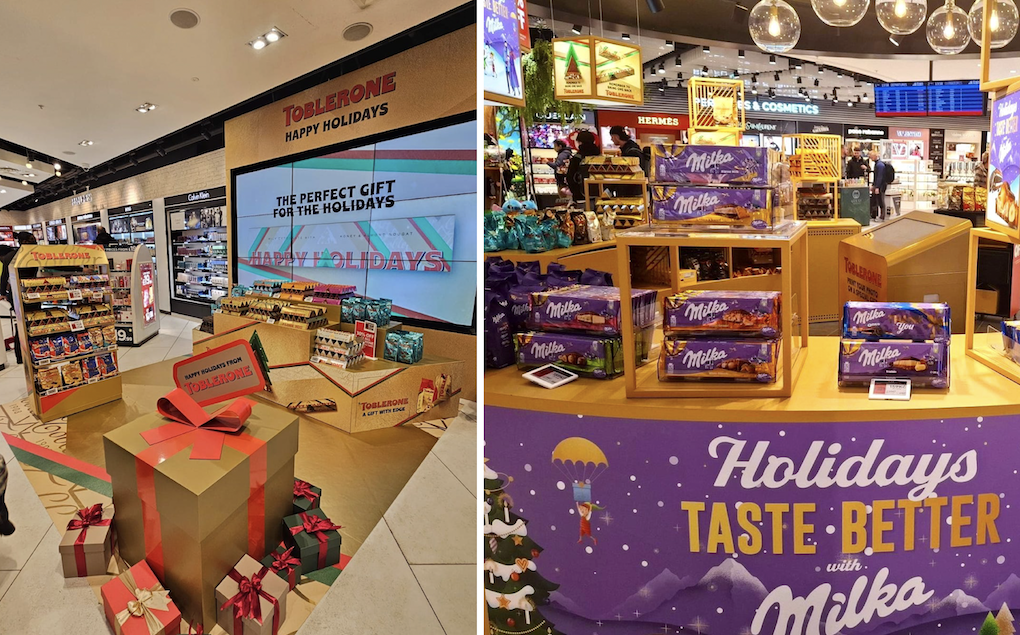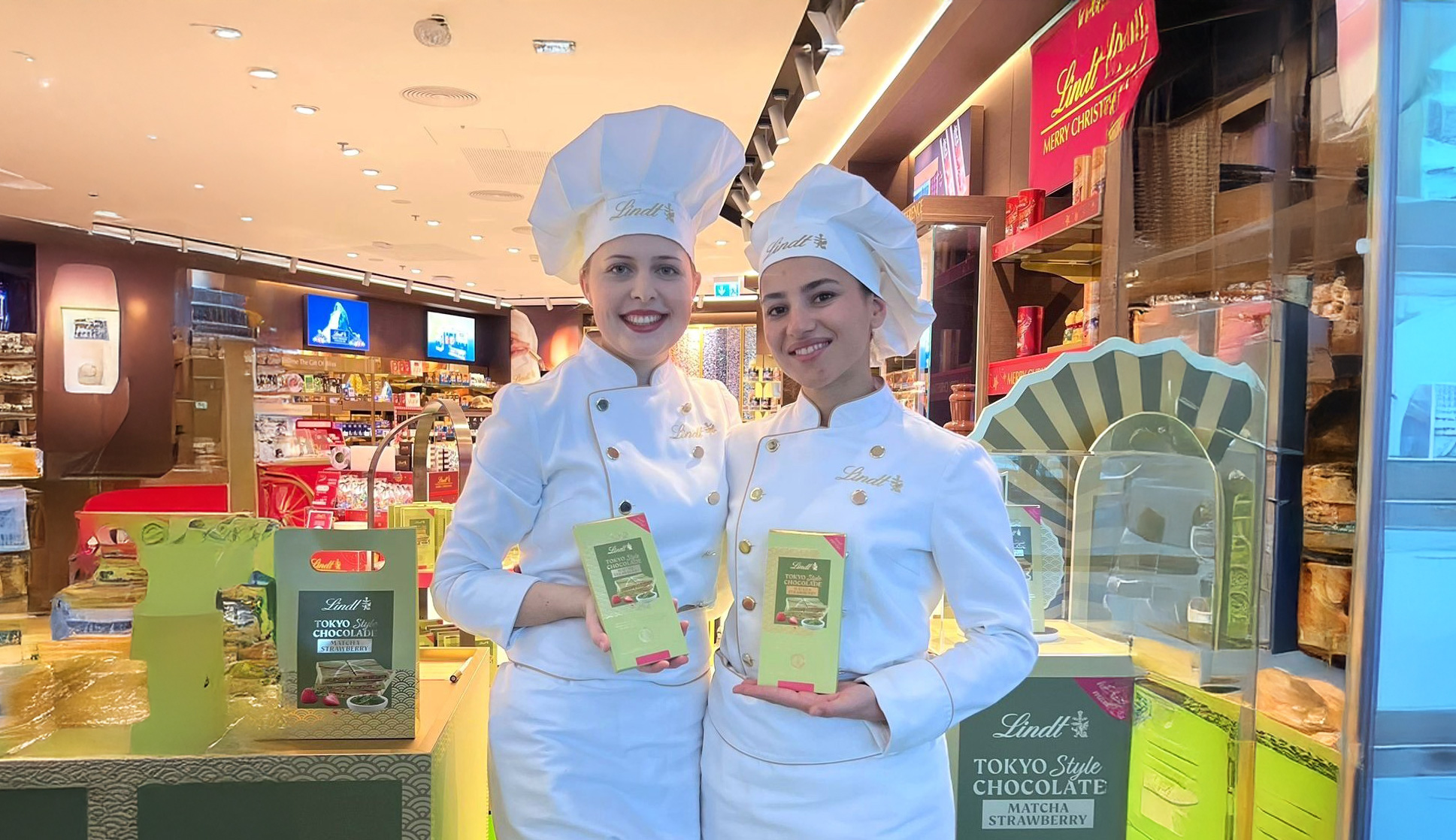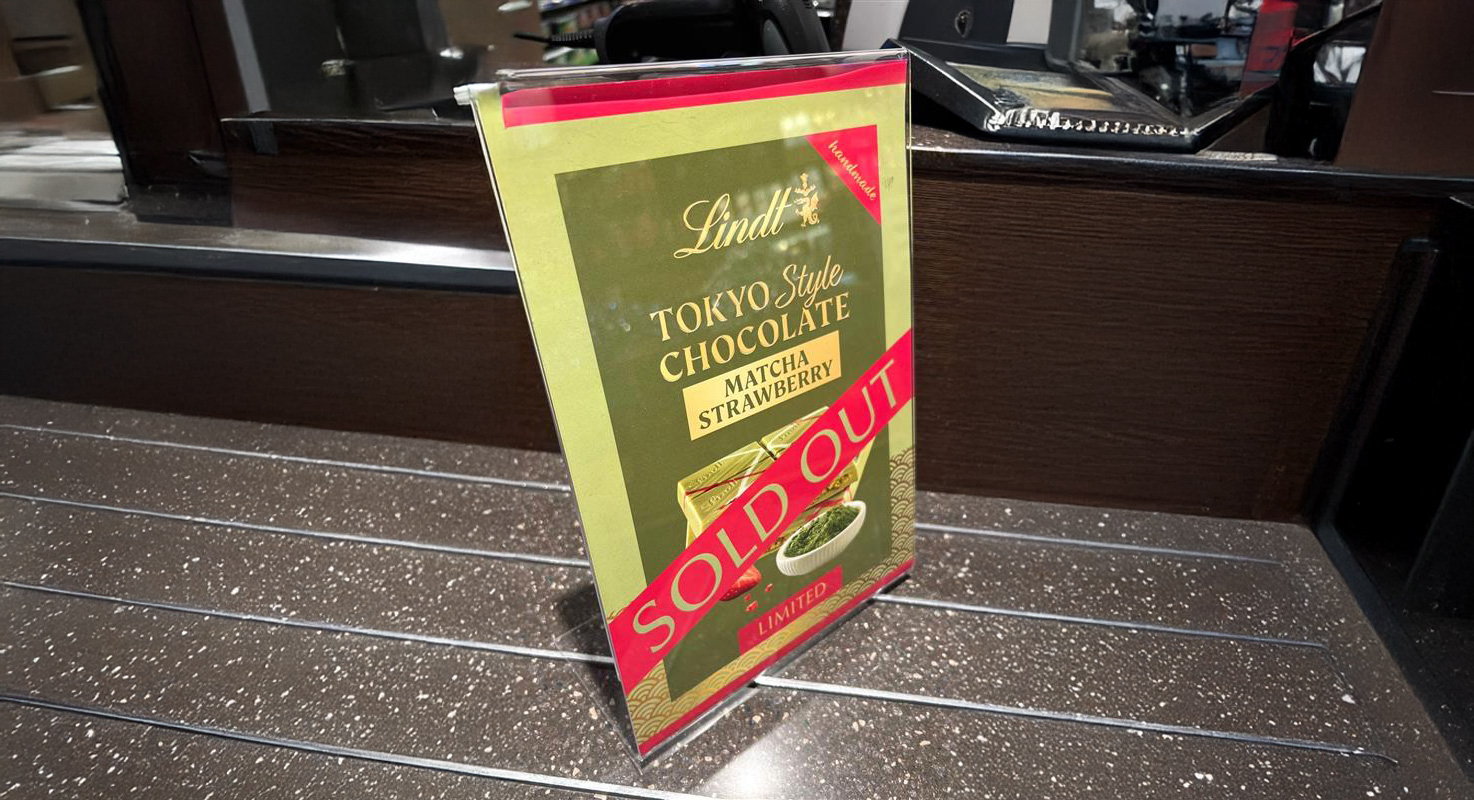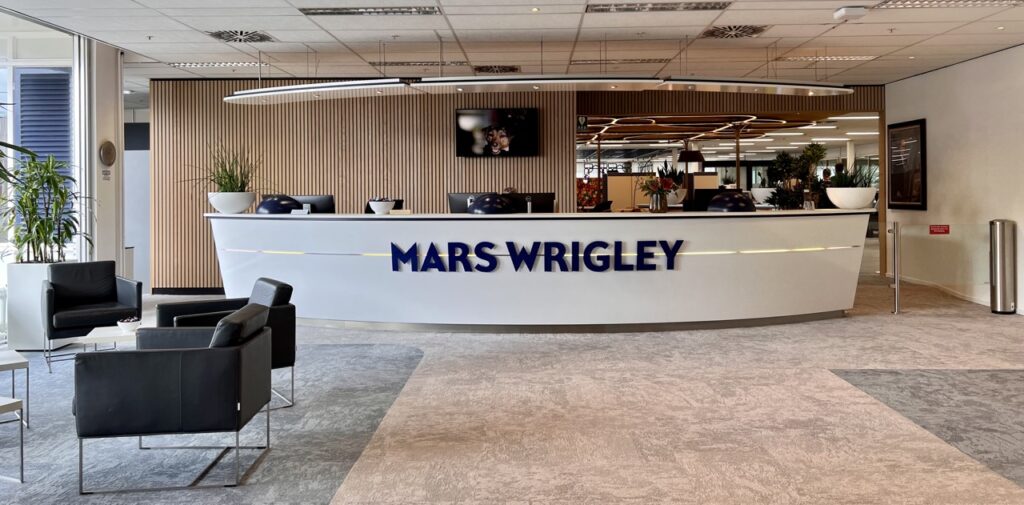
NETHERLANDS. The Moodie Davitt Report was on location earlier this month at Mars Wrigley’s Veghel headquarters to learn more about the chocolate company’s Sustainable in a Generation promise and get a behind-the-scenes look at the world’s biggest chocolate bar factory.
During the Mars Wrigley immersion on 12 July, travel retail media had the opportunity to discover the in-house Cocoa Experience tour, which traces the company’s sustainable supply chain. The tour was led by Mars Wrigley Corporate Affairs Director ITR Roel Govers and outlined the group’s key projects to help cocoa farmers prevent child labour, earn a living income and create a more sustainable future.
The Sustainable in a Generation programme addresses key areas of the United Nations Sustainable Development Goals. The company’s plan is rooted in three major pillars: Healthy Planet, Thriving People and Nourishing Wellbeing.
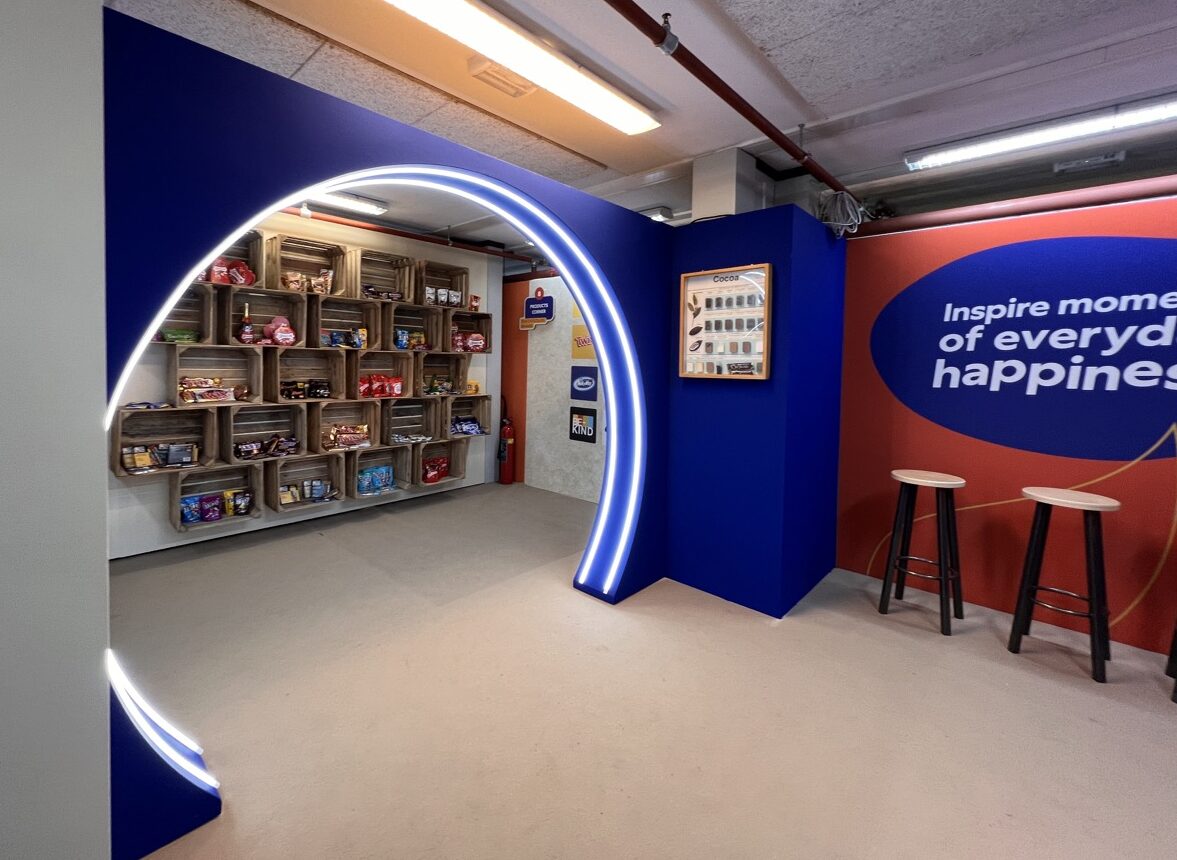
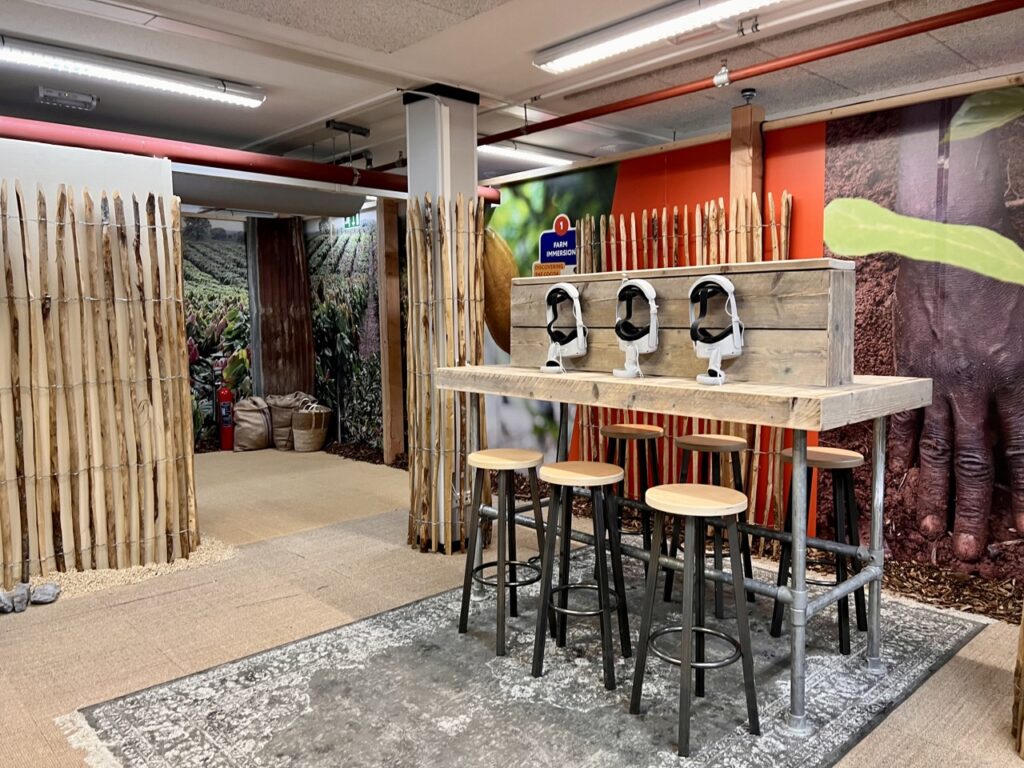
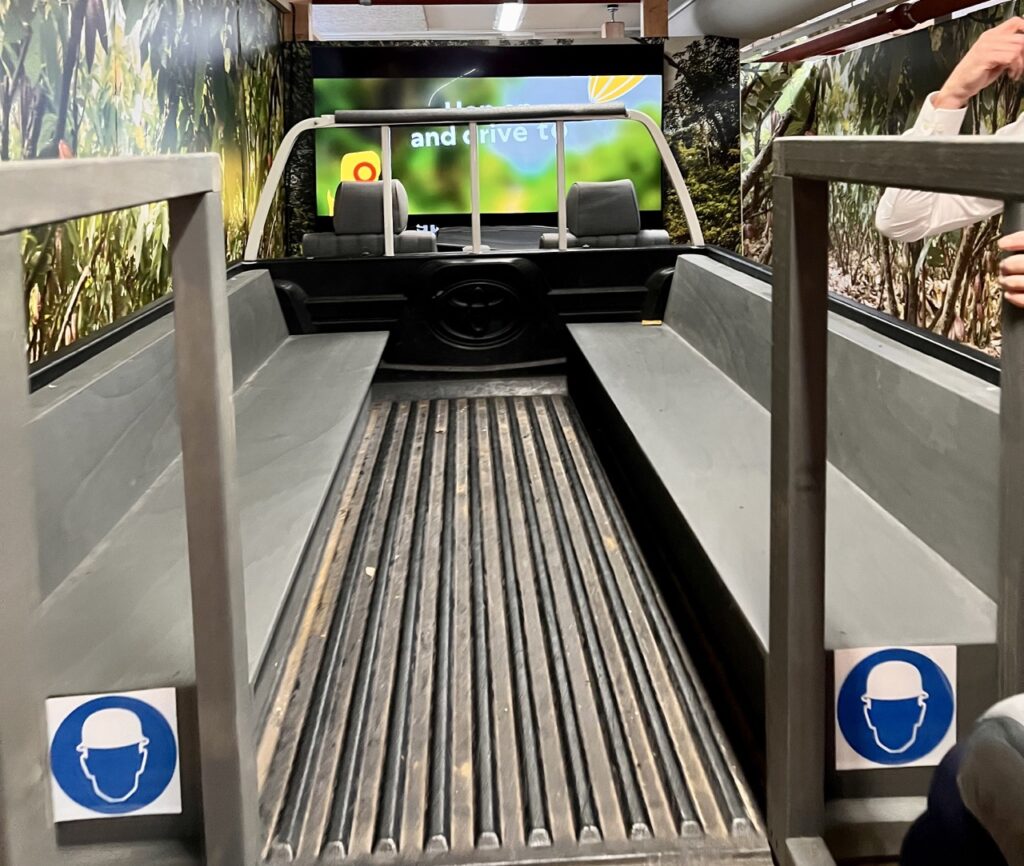
The Cocoa Experience begins with an immersive ride through cocoa plantations in Ghana and Côte d’Ivoire. This is followed by a Virtual Reality (VR) experience which portrays a day in the life of a cocoa farmer in one of Mars Wrigley’s origin countries.
Mars Wrigley is dedicated to advancing respect for human rights in cocoa farming communities. Its Responsible Cocoa Programme ensures that 100% of at-risk families in its supply chain will be covered by the System for Monitoring and Remediation of Child and Forced Labour (CLMRS) by 2025.
The company is also expanding non-profit organisation CARE International’s Village Savings and Loans Associations (VSLAs) to help empower women in cocoa farming communities with their own business ventures.
The company has reached 442,000 people through its human rights projects, helping 61,250 farmers increase their income and reaching 70,000 women through its VSLA programme.
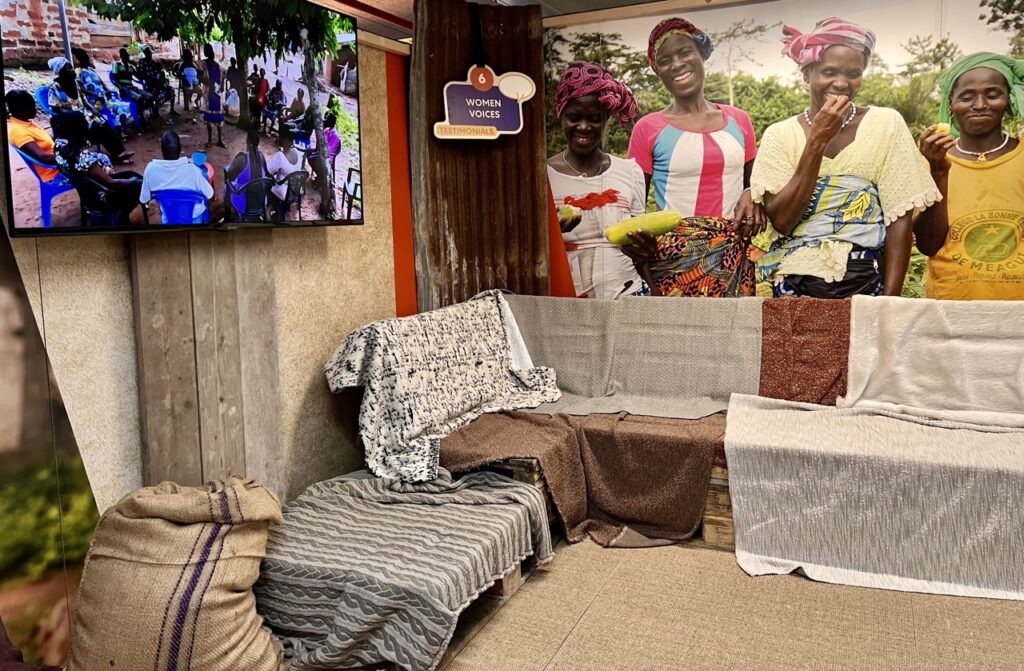
The company has pledged to having a deforestation and land conversion-free supply chain for 100% of its cocoa by 2025. To achieve this, it is mapping and tracing perimeters of cocoa farm plots to prevent any deforestation.
Veghel: The beating heart of Europe
The Veghel plant, which was originally built in 1962 (and rebuilt in 1963 due to a fire), has a central role in the history of the family-owned company. In recent years, it has undergone a transformation as part of the company’s wider Sustainable in a Generation roadmap. Today, the factory uses 1.5 million cubic metres less natural gases than it did in 2015. By 2024, it will be using -80% less fossil fuels than 2015.
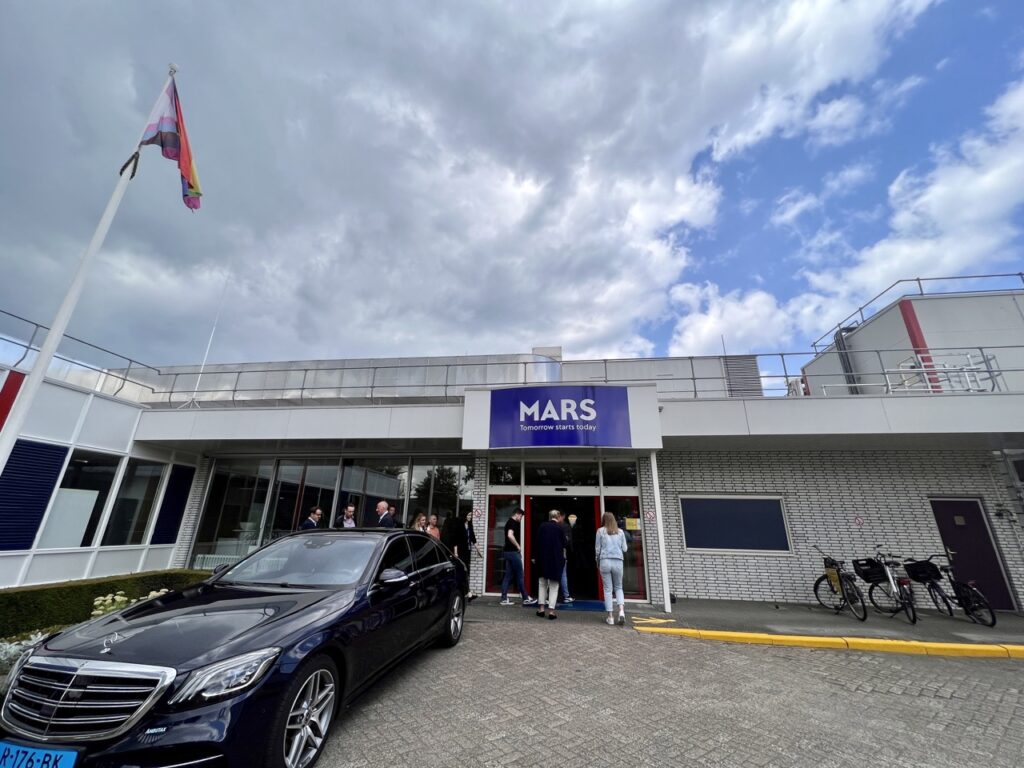


Commenting on the Sustainable in a Generation roadmap, Mars Wrigley International Sales Director Marcus Hudson said: “While our competitors shout about sustainability a lot more than we do, in reality we’re doing more of the work. That’s one of the things that makes me really proud about Mars. It’s not about us, but the work that we do. For example, our Responsibly Sourced Cocoa logo is a certification we have that is stricter than Fair Trade and Rainforest Alliance combined and so the standard that we hold ourselves to is very high.
“Being a privately owned company means that Mars Wrigley was almost humble to a fault so talking about our sustainability progress wasn’t a priority,” he adds. “That’s the perspective we’ve had to learn to change. To be able to share the Cocoa Experience with you, which is not around the shop floor but in our headquarters, is indicative of this.”
“A little goes a long way and so we’re going to start communicating this more this year. For example, we can do this by putting a QR code in our gondolas so people can have access to our Sustainable in a Generation promise.” ✈
